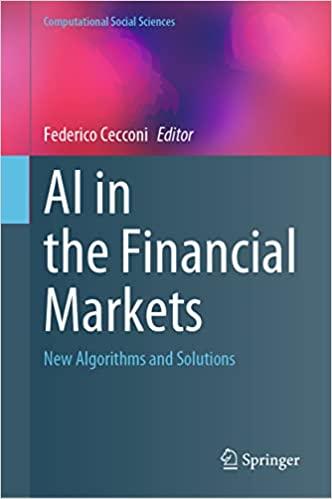Question
As CFO of Hidden Valley you are considering building a new salad dressing factory. The initial cost to build the factory is $1 billion, the
As CFO of Hidden Valley you are considering building a new salad dressing factory. The initial cost to build the factory is $1 billion, the factory will last 5 years. You plan to use straight line depreciation and depreciate the factory to a book value of 0 but expect to be able to liquidate the factory for $250 million. The firm also plans to use a building that it owns for its new factory. The building was built at a cost of $250 million which is not reflected in the initial cost of the project listed above. Alternatively, the firm could rent out the building instead for an income of $15 million per year (FCFF equivalent). The factory is expected to sell 50 million bottles of the new salad dressing at a unit price of $25 each year for the next 5 years and costs (other than depreciation) are 60% of revenues. But some of those annual sales (i.e. equivalent to $10 million in FCFF) will come from consumers who switch from buying Hidden Valley's existing dry packet salad dressing. Additional capital expenditures of $60 million will be required at the end of the 2nd year and will be fully depreciated over the next 3 years using straight line depreciation (i.e. t=3,4 and 5). Inventories and A/P will immediately rise by $20 million and $5 million respectively and remain at these levels until returning to back to original levels at the end of the project (t=5). A/R will rise by $100 million after the 1st year (i.e., at t=1) and remain at that level until falling back to original levels at the end of the projects life (t=5). If the discount rate (i.e. WACC) for the project is 15%, the marginal tax rate is 40% and the capital gains tax rate is 36%, what are the projects NPV and IRR?

Step by Step Solution
There are 3 Steps involved in it
Step: 1

Get Instant Access to Expert-Tailored Solutions
See step-by-step solutions with expert insights and AI powered tools for academic success
Step: 2

Step: 3

Ace Your Homework with AI
Get the answers you need in no time with our AI-driven, step-by-step assistance
Get Started


